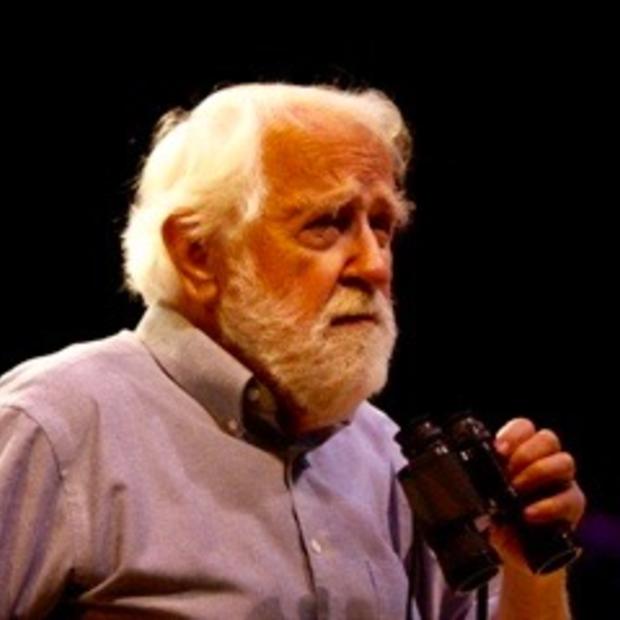Bellingham might have won on points if it hadn'êt got knocked out in the final round. The "knockout" being an unwillingness to subsidize the cost of relocating the National Oceanic and Atmospheric Administration'ês fleet of ships and research labs from Seattle to another seacoast location. Newport, Oregon will pay. Bellingham won'êt, and that seems to have cost them the prize.
At least that'ês the way Bellingham port staff and commissioners see it. Nevertheless, Bellingham Port Commissioners voted Wednesday (August 19) not to appeal NOAA'ês decision to move from Seattle to Newport. The Port'ês General Counsel, Frank Chmelik, advised the Bellingham Commisioners that they could find themselves spending as much as $300,000 on an appeal, and win nothing more than another look at the same factors that won it for Newport the first time around. In the end, Chmelik said there were some errors with NOAA's technical review, but they likely would not have trumped the financial benefits of relocating to Newport.
"I, for one, believe that you could win the round and lose the fight," he told the Port Commissioners. "As much as I like taking up a fight, I have to tell you that.'ê
NOAA briefed Chmelik and Port managers August 17 on the outcome of the competition, and later the Bellingham team told reporters what they had learned. There'ês nothing here about Seattle; NOAA talked with the Bellingham team only about Bellingham vs Newport, and not about any offer made by the private corporation presently housing NOAA on Lake Union. NOAA has signed a 20-year lease with Newport as the new site for the Marine Center, which has been on Lake Union for nearly 50 years and employs 175 people.
According to the NOAA briefing, Bellingham scored a very close second in the 'êtechnical'ê judging criteria. That includes such factors as the location of the site (Bellingham wins) the severity of the winds (Newport wins) proximity to shipping routes (Bellingham) availability of day labor (Bellingham), access to fire protection (Newport) and access to solid waste removal (a tie).
Bellingham'ês experts believe NOAA made some important errors which might have swung the decision. On one factor, the state of readiness of the port, the NOAA deciders took Newport at its word that its permitting process would allow a quicker build than in Bellingham. The Bellingham Port suggested that a neutral third party, preferably the US Army Corps of Engineers, should have advised NOAA on how long it would take to have each proposed new site ready for the ships.
Then there are the so-called 'êquality of life'ê factors. Bellinghamsters wishing to live out the dream of a true lesser Seattle have ground their teeth over a spate of 'êbest places'ê magazine articles in the past several years, rating Bellingham at the top of some very subjective and questionable lists. But NOAA thinks Newport'ês a better place to live than Bellingham. In this decision they pondered the quality of schools (Bellingham wins), the cost of housing (Newport'ês less expensive) and the proximity to hotels, motels, and recreation (a tie).
However these might have turned out in a more objective study, they seem to have been overruled by price. When it came down to the cost of building the new NOAA facility, Newport wins big. Primarily because &mdash again, this is the view of the disappointed Port of Bellingham team &mdash Newport and the state of Oregon offered NOAA a share of their bonding capacity to help defray the cost of the move. Bellingham refused to do that. The Port has countywide taxing authority and could have floated bonds to pay for the NOAA transfer, but as Port spokesperson Carolyn Casey says, 'êWe don'êt think a farmer in Lynden should help subsidize a federal seaport project on Bellingham Bay.'ê
With Commissioner Scott Walker absent, the decision not to appeal was taken by only two members of the port board. Commissioner Doug Smith moved that the port spend no more money on the effort to attract NOAA. In agreeing, Commissioner Jim Jorgenson criticized U.S. Sens. Patty Murray and Maria Cantwell. He complained that they gave the Port of Bellingham no help until the decision was made and are only now asking the U.S. Government Accountability Office to review the decision.
Most of Washington'ês Congressional delegation signed on to a letter from Cantwell to the GAO. Significantly, Rep. Rick Larsen'ês name was not on the letter, nor that of Rep. Norm Dicks. Larsen represents Bellingham and Dicks represents Port Angeles, also a competitor for the NOAA fleet. With Bellingham deciding not to appeal and Port Angeles unlikely to appeal, the congressional protest may be meaningless. It puts Cantwell, Sen. Patty Murray, and Representatives Brian Baird, Jay Inslee, Jim Mc Dermott, Dave Reichert, and Adam Smith in the position of intervening for the private owner who'ês been renting pier space to NOAA on Lake Union, before a 2006 fire and a pending rent increase helped persuade the prestigious federal agency to go south.
The Port of Bellingham had counted on NOAA to be its anchor tenant in a huge waterfront redevelopment project encompassing the former Georgia Pacific pulp and paper mill, which the Port bought in 2003, taking on the responsibility to clean up 100 years'ê worth of industrial toxins from the land and the adjacent bay. The mill site sits empty, scraped clean of demolition debris and waiting for someone who wants prime saltwater property next to a boat basin, an active shipping terminal and eyeball washing views of the San Juan Islands. Wednesday, in a nearly empty meeting room, Port staff and Commissioners reassured each other that with the NOAA quest out of the way, they'êll be able to concentrate once more on finding new tenants for their huge empty waterfront.


